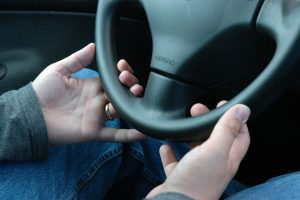An Orlando car accident lawsuit alleges vehicle manufacturer Tesla has mislead consumers into believing the autopilot feature of these vehicles is more capable – and safer – than it truly is. Florida car accident attorneys know that while claims against car makers isn’t a new phenomenon, this case could foreshadow what we can expect in the courts when the auto industry is rolling out ever more advanced tech for use on our roads.
According to Wired, the autopilot feature was a key reason he opted to buy the Tesla Model S vehicle last year. His daily work commute was 250 miles round trip, most of it on the highway, and he concluded the semi-autonomous driving system would make his life easier. He used the feature on a regular basis, allowing it to keep the car in his lane and avoid other moving vehicles. During his ride, he relaxed, checked his emails, private messages and social media – though he insists he never completely stopped paying attention. Then a few weeks ago, as he was returning home to Winter Garden from his job in Fort Pierce, Autopilot engaged at 80 mph on the Florida Turnpike, something unexpected happened: He crashed. He struck a disabled, empty Ford Fiesta that was abandoned in his lane of travel.
Now his car accident lawsuit, filed in Florida’s Ninth Judicial Circuit, alleges severe permanent injuries, including a fractured vertebrae. In a written statement, a company spokesperson indicated the automaker has no reason to believe the feature somehow failed, stressing that when Autopilot is engaged, it is still the driver’s duty to stay alert to their surroundings and “in control of the vehicle at all times.” The company insists it has never advertised the feature as a fully autonomous system and never promised that Autopilot would make the car crash-free. Prior to using Autopilot for the first time, drivers are required to watch the road and keep their hands on the wheel. If a driver goes more than a few seconds without their hand on the wheel, a warning bell starts to ding. Continue reading
 South Florida Injury Lawyer Blog
South Florida Injury Lawyer Blog

